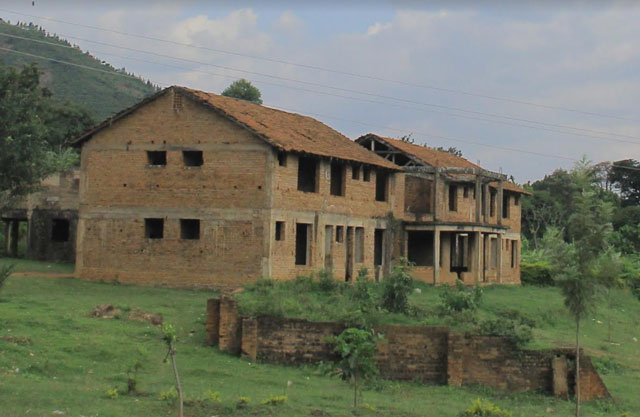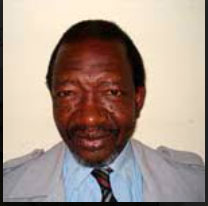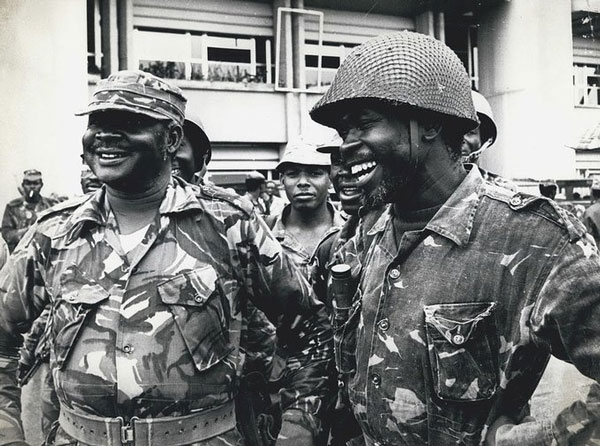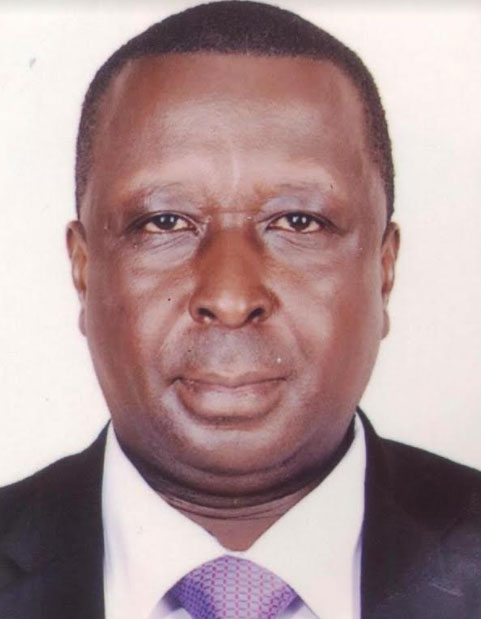
OBITUARY | Alfred Geresom Musamali | Hon Patrick Masette Kuuya, son of Abner Walyawula of Sibanga in the current Manafwa district, was the “Bituli Mia” of Dr Apollo Milton Obote’s Second Government (1980 to 1985). “Bituli” in some Ugandan languages means gaps, holes, shapes or openings while “mia” is Kiswahili for a hundred. Bicycle riders and repairers equip in their toolboxes a sheet metal multi-purpose spanner they call “bituli mia”, a must-have with many gaps, holes, shapes or openings — though, of course, not quite a hundred.
 Born in 1946, Masette Kuuya was by 1980 Member of Parliament (MP) for Mbale South-West Constituency, Minister of Rehabilitation, ruling Uganda People’s Congress (UPC) party treasurer, National Council of Sports (NCS) chairperson and managing director of his multiplicity of private businesses grouped as Sibanga Transport Company (Sitra), Wanale Quick Bus Services (WQBS) and Masette and Brothers (Mass Bros) — thus making him a “Bituli Mia” of sorts.
Born in 1946, Masette Kuuya was by 1980 Member of Parliament (MP) for Mbale South-West Constituency, Minister of Rehabilitation, ruling Uganda People’s Congress (UPC) party treasurer, National Council of Sports (NCS) chairperson and managing director of his multiplicity of private businesses grouped as Sibanga Transport Company (Sitra), Wanale Quick Bus Services (WQBS) and Masette and Brothers (Mass Bros) — thus making him a “Bituli Mia” of sorts.
In social life, Masette was proprietor of the Mbale Club that served modern brew in Mbale’s Senior Quarters but was as well patron of Ndolelele, a think tank based on the malwa (local millet brew) model on Nambozo Road at Nkoma, near the current site of the Islamic University in Uganda (IUIU).
It is not even clear whether he had formally retired from the Uganda National Liberation Army (UNLA), the force with which he came fighting from exile in 1979, when he fled back in July 1985.
Influential student
As a student, he had been very influential house prefect at Nabumali High, where his schoolmates included army chief of staff General Oyite Ojok and James Kalebo, the former director at the Uganda Management Institute (UMI) in the mid-1960s. At Makerere’s Northcote (now Nsibirwa) Hall, he was a Students’ Council Representative (SCR).
By the time he fled Uganda for the first time in 1971 to follow Dr Obote into exile in Tanzania, he had just handed over power as president of the National Union of Students of Uganda (NUSU) and was very active in the National Union of Youth Organisations (NUYO). NUSU is the forerunner of the Uganda National Students Association (UNSA) while NUYO was for the out-of-school youth. Whereas in theory both NUSU and NUYO were non-partisan, some people have claimed that in reality, they were appendages of the ruling party.
Writing on social media last month (October), Mbale-based researcher Dr Sam Watulatsu said Masette Kuuya played a very important role in the government decision to establish the IUIU in Mbale in eastern Uganda instead of Arua in West Nile where former President Idi Amin had planned it. But other members later pointed out that whereas Masette Kuuya often moved things, he was impatient, hot tempered, foul mouthed and easily came to blows. They noted, though, that he was also very quick to reconcile or forget and move on.
“Many thought him coarse and arrogant,” said Dr Medi Kwesiga, the NUSU president in 1982/83 and the NUYO president at the time of Obote’s second fall. “He took no nonsense, and always said his mind both in politics and in social life”.
The war times
Masette Kuuya held a Bachelor’s degree in economics from Makerere and a master’s from the University of Dar-es-Salaam before interrupting his academic life to join the war. He has only recently attained his PhD.
In 1972, he was one of the guerrilla forces that invaded Uganda through Mutukula on the border with Tanzania. He took the same Masaka route (Central Axis) with former minister Joshua Wakholi who was captured at the war front amidst the Sango Bay sugar plantations, paraded to the media then made to disappear.

George Walwanyi, Wakholi’s brother, took the Isingiro route (Western Axis) with Yoweri Museveni and unsuccessfully invaded Mbarara town. Walwanyi, who only died a year ago of natural causes, is the small Mugisu boy Museveni in Sawing the Mustard Seed says helped him to turn around the lorry and retreat.
Masette Kuuya said the need to liberate his country compelled him to invade Uganda again in early 1979. This time they pretended to be a football team. They scheduled a series of matches between Nairobi, Eldoret and Bungoma in Kenya then entered Uganda to throw bombs around military installations in Tororo, before retreating.
I did not know him then, had never even heard of him, till the liberating forces next appeared through Mutukula again and I saw him with pips of an army captain.
Narrating the sad events in my presence at the home of Patrick Wandyetye Soita during the 1980 election campaigns, Masette Kuuya broke down and cried, saying Wakholi and many other fighters had lost their lives in those escapades. Actually, I remember that fresh from the war he had no handkerchief in which to wipe either his tears or mucus and somebody lent him one, just as he was about to untuck his shirt to use.
I have since twice physically participated in futile attempts to trace the remains of Wakholi in the part of Masaka which now falls in Rakai district. In memory of Wakholi, Masette Kuuya attempted to build a conference centre at Nabumali, which incomplete structure, has over time been vandalised.
Location of Mandela stadium
Soita was UPC Constitutency Secretary in 1980 to 1985. He told The Independent on Thursday that Masette Kuuya wanted the whole Mandela National Stadium also built at Nabumali ahead of a Confederation of East and Central African Football Association (CECAFA) Championships, but he met resistance.
“The structure you see today in Namboole would have been built at Nabumali,” said Soita.
Instead, Masette Kuuya upgraded the Municipal (now City) Stadium in Mbale but instability also disrupted his progress. Meanwhile, stories loomed large about the struggle between Masette Kuuya and then party secretary general Dr Luwuliza Kirunda over whether to stage the games in Jinja’s Bugembe Stadium within Luwuliza Kirunda’s Busoga sub-region or in Mbale.
Burial
Masette Kuuya died at Kenyatta Hospital in Nairobi on Tuesday, 22nd November, 2022. Joshua Kuuya, Masette Kuuya’s half-brothers from a step-mother, on Friday 25th availed The Independent a copy of the tentative funeral programme.
According to the programme, there will be a funeral mass at Kenyatta University where he has been teaching on Saturday, 3rd December beginning 2pm. The remains will be flown to Entebbe Airport on Sunday 4th December, followed by a funeral service at All Saints Church, Nakasero on Tuesday, 6th December before leaving for Sibanga.
On Wednesday, however, the remains will be brought back to St Andrew’s Church of Uganda (CoU) Cathedral in Mbale. Burial will be next to one of his ambitious but incomplete projects in Sibanga on Thursday, 8th December.
Joshua Kuuya revealed that the ambitious project at their ancestral home was intended to be a three-in-one house, with a health facility occupying one of the wings. He told The Independent that Government has promised to send a team to the ancestral village on Monday, 28th November to complete part of the house ahead of the burial.
Adieu
There goes the man who fought so hard for Mbale’s share of the national cake, the man who Leonard Wamakote Wambi and myself as young teachers in Bulucheke Secondary School in July 1985 saw driving into the compound, transacting some business impatiently and fleeing. There goes Obote’s Bituli Mia. Certainly his methods were not the very best. But, maybe, they were dictated by the prevailing times. Rest in Peace, Professor Patrick Masette Kuuya.
*******

The author is Founding Director of Vicnam International Communications Ltd, a private firm of communications, public relations and information management consultants. He specialises in the Proofreading and General Editing (PAGE) of documents and can be contacted by Tel: (+256)752-649519 and by Email: agmusamali@hotmail.com.
 The Independent Uganda: You get the Truth we Pay the Price
The Independent Uganda: You get the Truth we Pay the Price



